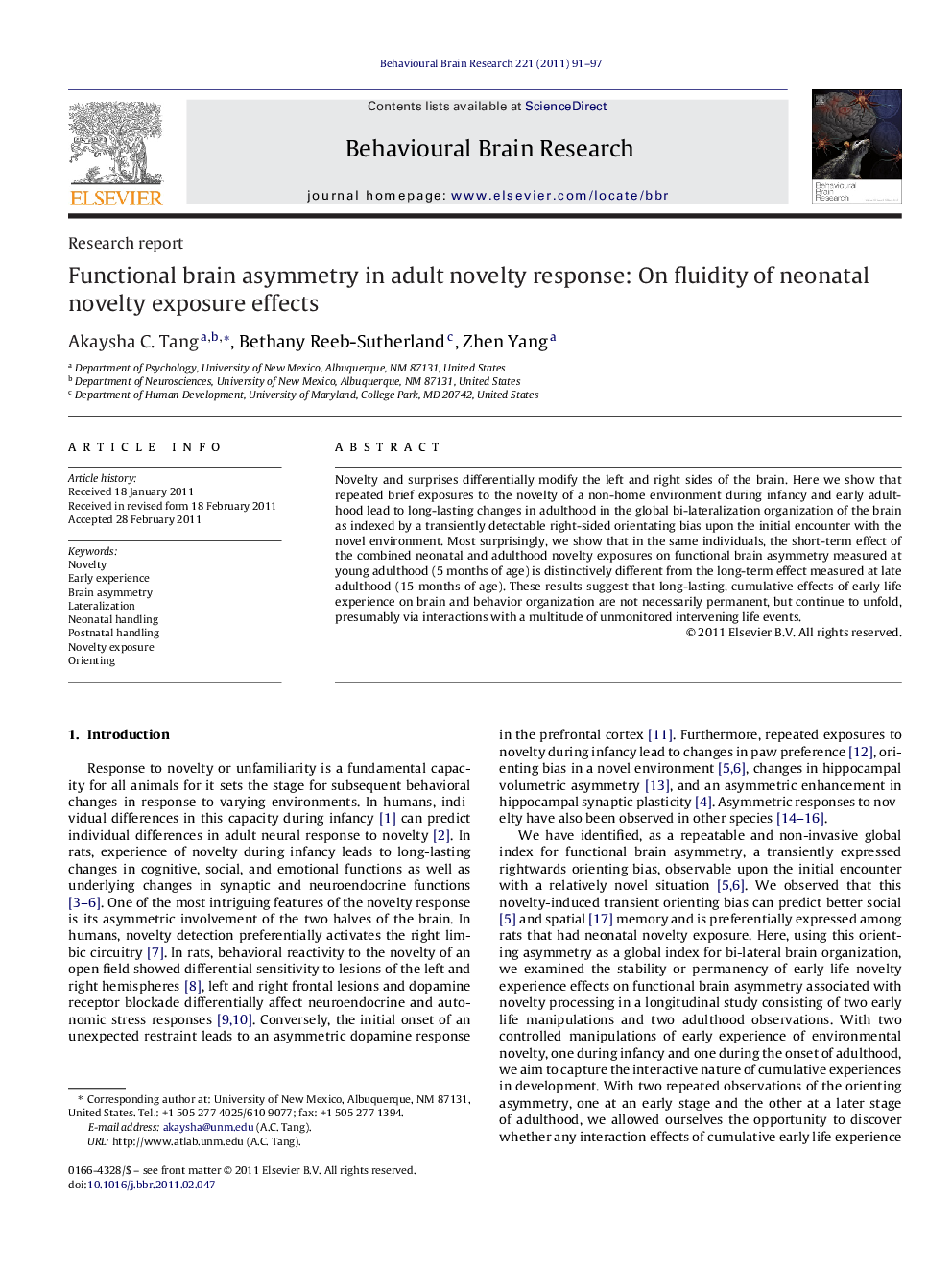| Article ID | Journal | Published Year | Pages | File Type |
|---|---|---|---|---|
| 4313680 | Behavioural Brain Research | 2011 | 7 Pages |
Novelty and surprises differentially modify the left and right sides of the brain. Here we show that repeated brief exposures to the novelty of a non-home environment during infancy and early adulthood lead to long-lasting changes in adulthood in the global bi-lateralization organization of the brain as indexed by a transiently detectable right-sided orientating bias upon the initial encounter with the novel environment. Most surprisingly, we show that in the same individuals, the short-term effect of the combined neonatal and adulthood novelty exposures on functional brain asymmetry measured at young adulthood (5 months of age) is distinctively different from the long-term effect measured at late adulthood (15 months of age). These results suggest that long-lasting, cumulative effects of early life experience on brain and behavior organization are not necessarily permanent, but continue to unfold, presumably via interactions with a multitude of unmonitored intervening life events.
► Rats with early novelty experience show a right bias in orienting response to novelty in adulthood. ► Effects of combined neonatal and adult novelty experience cannot be inferred from each alone. ► Early experience effects are not permanent, subject to continuing modification by intervening life events.
